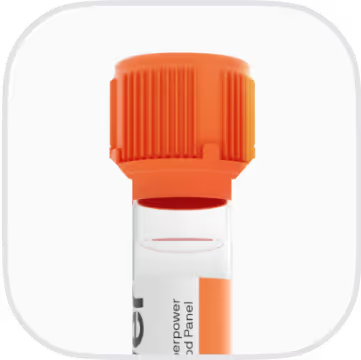What are Cancer-Associated Inflammation biomarkers
Cancer-associated inflammation biomarkers are blood signals that capture how a tumor and the immune system are talking. Cancer often stirs a body-wide inflammatory response that supports tumor growth and spread while straining normal tissues. Measuring these markers gives a real-time readout of that process, beyond what scans alone can show. Many come from the liver as part of the acute-phase response (C-reactive protein, serum amyloid A, fibrinogen), driven by immune messengers released by tumors and immune cells (interleukin-6, TNF-alpha, CXCL chemokines). Others reflect shifts in circulating blood cells mobilized by inflammation (neutrophils, lymphocytes; summarized in ratios like NLR). Some are enzymes and mediators tied to tissue remodeling and clotting (ferritin, lactate dehydrogenase, D-dimer). Together, they mirror the intensity and character of tumor-driven inflammation in the bloodstream, indicating how “hot” the cancer–host interaction is. Tracking them over time can reveal changes in disease activity, show whether treatment is damping inflammatory signaling, and help flag complications related to systemic inflammation.
Why is blood testing for Cancer-Associated Inflammation important?
- Spot cancer-related inflammation burden using NLR, PLR, SII, and SIRI ratios.
- Flag imbalance between neutrophils, lymphocytes, platelets, and monocytes that tracks tumor activity.
- Clarify prognosis by linking higher ratios with worse outcomes in many cancers.
- Guide preoperative risk talks by identifying higher complication and recurrence risk.
- Support treatment monitoring by tracking inflammatory shifts during chemotherapy, immunotherapy, or radiation.
- Track trends over time to assess response and detect worsening inflammation early.
- Avoid using these ratios to diagnose cancer; they are nonspecific inflammation markers.
- Interpret best with a CBC differential, CRP, imaging, and your cancer details.
What insights will I get?
Cancer-Associated Inflammation blood testing provides insight into how your immune system and blood cells interact in the context of cancer risk and overall system health. Chronic inflammation can disrupt energy production, metabolism, cardiovascular function, and immune surveillance, all of which are critical for maintaining resilience against disease. At Superpower, we assess four key biomarkers—NLR (Neutrophil-to-Lymphocyte Ratio), PLR (Platelet-to-Lymphocyte Ratio), SII (Systemic Immune-Inflammation Index), and SIRI (Systemic Inflammation Response Index)—to give a comprehensive view of inflammation linked to cancer biology.
NLR and PLR measure the balance between different types of white blood cells and platelets, reflecting how your body responds to stress and inflammation. SII and SIRI are composite indices that integrate neutrophil, lymphocyte, monocyte, and platelet counts, offering a broader picture of immune system activation and inflammatory status. Elevated values in these markers can signal a shift toward a pro-inflammatory state, which is associated with increased cancer risk and progression.
Stable, healthy levels of NLR, PLR, SII, and SIRI suggest that your immune system is balanced and not chronically activated. This balance supports tissue repair, immune defense, and cellular stability, reducing the likelihood of inflammation-driven changes that can contribute to cancer development.
Interpretation of these biomarkers can be influenced by factors such as acute infections, recent surgery, pregnancy, age, certain medications, and laboratory assay differences. These variables should be considered when evaluating results to ensure an accurate understanding of your inflammation status.







.avif)



.svg)





.svg)


.svg)


.svg)

.avif)
.svg)










.avif)
.avif)
.avif)


.avif)
.avif)




.svg)




.avif)


